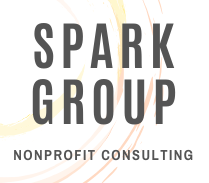Year-end fundraising is a great opportunity for nonprofit organizations to meet their fundraising goals. Below are four phases for developing your year-end campaign work plan.
Preparing for Exciting New Opportunities
Providing quality, paid leave, benefits your staff. Still, if you budget for the time away, you may be worried about how to carry the load of the responsibilities while your employee is out of the office. Here are three tips to help you prepare:
How to Fund Your New Program
Raising funds for nonprofit organizations is a complex process of prospecting, relationship building, campaigns, events, proposals, and more. When you throw the challenge of raising funds for a new initiative into the mix, the process becomes even trickier. Some funders even flat-out refuse to support new programs due to their lack of proven impact. Though, there are steps you can take to secure the funds you need.
2022: Trending Benefits to Retain your Staff
In a recent study from Nonprofit HR, 80% of respondents indicated that they had no formal employee retention strategy. As we emerge from the stress of the pandemic, your employees and colleagues are likely talking about what it would take to keep employees engaged. Focus on nurturing a psychologically safe work environment and offer key benefits – both of which cost comparatively little. We outline three flexible benefit trends that help your organization to stand out.
Four Steps to Designing Quality Programs
It’s the perfect time of year for designing new programs or initiatives, and we at Spark Group want to help make the process as easy and stream-lined as possible. At Spark Group, we incorporate a 4 phase process into much of our work, including designing quality programs. These phases are Explore, Plan, Implement and Evaluate. Following these steps throughout this four-phase process will help you design quality programs for your nonprofit.
How to Set Healthy Boundaries as a Nonprofit Leader
A common badge of honor that we wear as nonprofit professionals is the one that states “I’m overworked!” It is time to change that narrative! You are a superhero! You are running a social service organization trying to solve the world’s most pressing problems on limited resources. I totally affirm that you are working your tail off and that you are tired! However, it is imperative that we take the necessary steps to handle our stress in order to help move our organizations forward.
Outputs, Outcomes & Impact: What’s the difference?
Evaluation work is extremely important, and getting it right matters. Good evaluation allows you to know whether or not your efforts are effectively helping you reach your goals, and whether or not you’re making best use of scarce resources. If it turns out your programs aren’t as effective or efficient as you thought – it doesn’t mean you’ve failed. In fact, your evaluation can be used to make any necessary adjustments, learn from your experiences, and improve your offerings in the future.
Take the Equity Challenge
In the nonprofit and business sector the work of Diversity, Equity, and Inclusion (DEI) has become a significant focus these past few years. This work is important and challenging. In this blog, I will be focusing on equity. Achieving equity is one of the hardest parts of DEI work. To work towards equity, we must understand clearly what equity means, how to get started in equity work, and how to build equity into our organizations.
Crafting Compelling Client Stories—that Honor Dignity
Think of the last fundraising appeal that you wrote. Did it include a client's story? Using personal stories can be powerful but any time you tell someone else's story you need to proceed with caution. If you are going to use a client's story, and do so in a way that honors all of their unique stories, then you must first develop your relationship.
Fundraising Activities with High Return on Investment
Fundraising is like the stock market. Some stock options are conservative or highly volatile. You have to take a risk to gain or lose a profit, but you need to be strategic about it. You can measure an investment’s profitability by assessing its return on investment. Similarly, in a fundraising world, you have to invest in your donors, be strategic and determine which fundraising activities will produce a high return on investment. Read more to find out how.
Designing Your Nonprofit Career
Are you interested in a career as a nonprofit professional? This post outlines five steps that will help create and foster the growth of a nonprofit professional as they tackle the obstacle of designing their career and life goals. This is an extremely personal journey as nonprofit work comes from the heart. If you do not love what you are doing, change what you are doing.
Focus Groups 101
When you find yourself in need of some high-quality, qualitative data about your programs or projects, a great evaluative tool to use is a focus group. A focus group is a method of gathering meaningful insights and opinions from a small group of carefully selected individuals who participate in a guided group discussion. Its purpose is to identify and understand more in-depth perceptions of a program or service than simple survey questions may answer. Read more to find out how to plan and hold a focus group.
Celebrating Holidays at Work
As we celebrate July 4th this week, it is an excellent time to think about the dos and don’ts for celebrating holidays at a non-profit organization. Celebrating holidays is an important part of the culture of organizations. Diverse cultures celebrate in a variety of ways and have different holidays. It is important for an organization to understand its culture better and also understand the culture of the staff, the community, and the people that are being served. You don’t want to commit any faux pas when you celebrate holidays at your organization either. Here is a list of three dos and don’ts for celebrating holidays at work.
Four Ways to Improve Mental Health in Your Organization
As a leader, you understand that to take care of the well-being of an organization, you must care about the well-being of its people. Mental wellness is critical to reducing burnout, increasing productivity and staff retention, and improving functioning across many key skill areas, from communication to creativity to task completion. Healthy organizations must foster an environment that promotes mental health and wellness in order to thrive. Consider these ways you can support mental health in your organization.
How to Build a Donor List from Scratch
Every organization wants a generous donor base that will sustain the organization for years to come. It’s like building a house; you have to start by compiling a list of building materials to buy (including checking out product reviews and comparing prices). If you have a customer relationship management (CRM) database, creating a donor list from scratch is easier than you think. This article also includes evaluation criteria for making a donor list entirely from scratch, with or without a database.
Workplace Conflict: Don't Get Mad. Don't Get Even. Get What you Want!
You’ve likely heard the phrase, Don’t get mad, get even. The idea is that there isn’t much point in expending emotional energy on anger when you can take action. Well, this may be a motto some live by but when it comes to workplace conflict, “getting even” hardly ever leads to a healthy resolution. So what do you do when you are embroiled in the middle of a conflict and neither party will budge?
‘One Big Family’ Often Leaves People Out
I’ve heard it said of many businesses and organizations: “Where we work, we are like one big family.” Often it’s the company or organization leadership saying this, and usually with the best of intentions. By calling your workplace “One big family” – you’re likely trying to say something about your work culture or ethos. The message that leaders who say this generally seem to be attempting to communicate is ‘this is a workplace that cares,’ or ‘we all work in harmony together.’ But no matter how good the intentions behind a message may be – it’s important to consider exactly what message behind these words is truly being conveyed to the workplace.
4 Easy Tips for Summer Evaluation
The summer months are here, and for many organizations, this is a natural transition period into a new cycle of summer programming. If this is the case for your organization, this transition period can be a great opportunity to check in and check up on your organization’s evaluation practices and processes. Here are 4 easy tips to follow, to set yourself on the right track.
Proactivity: the Key to Nonprofit Sustainability
Prioritizing proactive behaviors is the most important factor in achieving greater sustainability. Operating out of a reactive environment means there will always be an emergency attempting to draw your attention away. Prioritizing proactivity is key. For organizations to move from the culture of reactivity to one of proactive planning, they must give up solely focusing on the concrete problems of day-to-day operations and begin to focus also on abstract concepts. The good news is that there are several proactive practices nonprofit leaders can engage in to strengthen their organizations. Here are five proactive practices that lead to increased sustainability.
Five Fun Summer Fundraising Ideas to Kick Off This Season
Things are sizzling up for the summer! Be sure to take advantage of the season, and talk with your staff, volunteers, board members, and supporters to get them fired up for the summer! To inspire your fundraising efforts this summer, here is a list of hot summer fundraising activities that will engage your donors and help you raise money for your organization. Don’t miss out on a fun opportunity to raise awareness about your organization and collect donations for your cause.





















